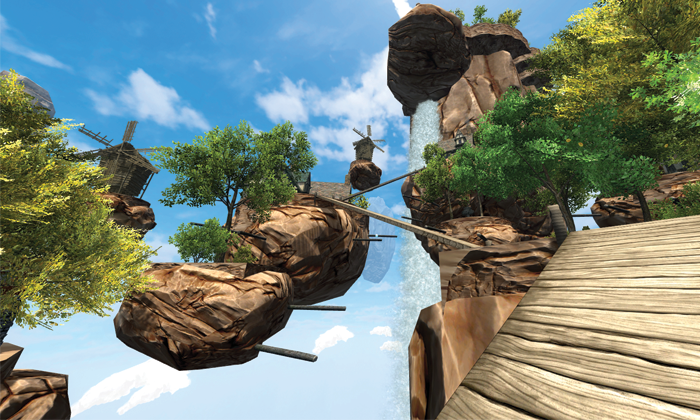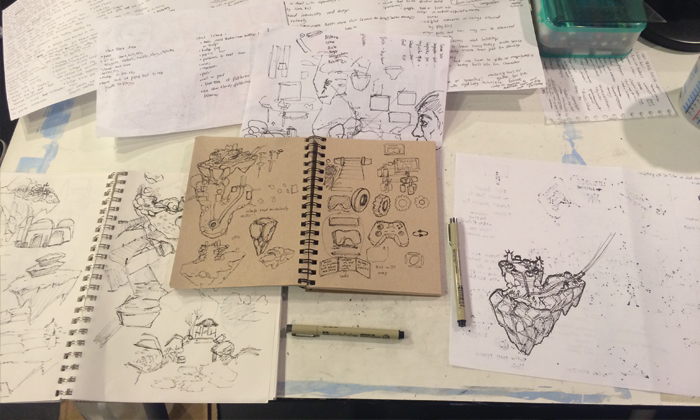Upwards
An early prototype of a video game platformer designed for the Oculus Rift. Upwards is focused on creating an immersive experience that looks at how platforming game mechanics might be used to explore future virtual reality worlds.
IDEA
Upwards started out less ambitious than it became. It was originally focused on creating a nice 3D environment for users to wander around in. Based on feedback, and explorations into scripting and what was possible, the game progressed into something more interactive. While still in development, the project has solidified into an experiment with first-person platforming and parkour mechanics in virtual reality.
CHALLENGE
At the beginning of this project, all that I had were an Oculus Rift, some basic 3D modeling and animation knowledge, a vague notion of what I wanted to create, and the desire to take my first step towards the game industry. I chose the Unity game engine to develop Upwards in because of its Rift support and ability to export mac compatible games. Over a period of 10 weeks, as a 1-man team, I learnt about many aspects of game creation, the struggles involved, and the excitement that comes from the creative experience.
OUTCOME
The current version of Upwards serves as a prototype for what more is still to come. The environment itself, while sketched out, assembled, and carefully tweaked in places, is still only a block-in that’s to be replaced by higher quality assets later on. The game mechanics and interactions have come a long ways since their initial stages, and now work well with the Oculus Rift. Further elements, such as puzzles, tutorials, and other islands are still in production. A lot of the success of this project is due to the availability of online resources, which have allowed for faster development and have freed up efforts to be spent on other areas of the game production pipeline.
APPROACH
Every step in the game creation process involved learning something new. The tasks that went into development changed dramatically over time, going from extracting what was working well in other Oculus Rift games and watching Unity tutorials, to long sessions of debugging and play testing to fix game mechanics and glitches.
During the development process, you come to the realization that there is no magic involved in making games. Most things have to be planned out, blocked in, placed by hand, and iterated on. Anything that works well or feels smooth probably took a lot of effort to get to that point. Development is fun, despite all of its difficulties, because of the unlimited possibilities, absolute creative freedom, feeling of overcoming challenges, and the understanding that your own abilities and what you’re doing could always be improved.
Designer
admin


